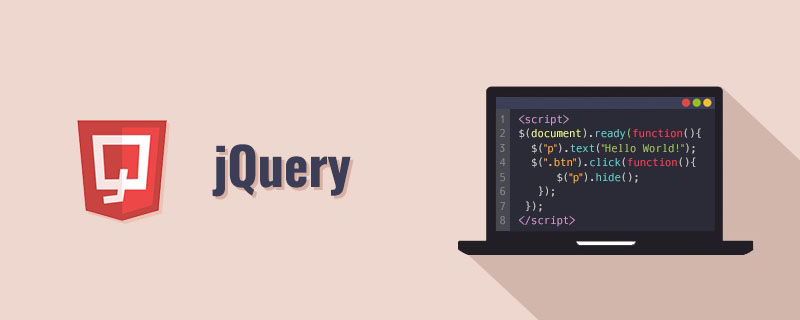In web development, we often encounter the need for paging. If we rely on hand-written code, there may be a lot of code and the style will not look good. Here is an introduction to jquery easyui Paging function, which is very convenient and simple
Then after including the necessary files according to the "jquery EasyUI Framework Usage Document", just insert the following code in $(function(){ });:
$('#pp').pagination(options);
Let’s introduce Pagination For specific usage, first look at the attributes:
Attribute name type description default value
total number Set the total number of records when paging is established 1
pageSize number per page The number displayed 10
pageNumber Number When paging is established, the number of pages displayed 1
pageList array Users can modify the size of each page, the
pageList attribute defines how many The size can be changed. [10,20,30,50]
loading Boolean defines whether the data is loading false
buttons array defines custom buttons, each button contains two attributes:
iconCls: CSS class for displaying background image
handler: handler function when a button is clicked null
showPageList Boolean defines whether to display the page list true
showRefresh Boolean defines whether to display the refresh button true
beforePageText string in the label displayed before the input box groupPage
afterPageText string in The label of {pages}
displayMsg string displayed after the input box component displays the information of a page.
Displaying {from} to {to} of {total} items Event Event Name Parameter Description onSelectPage pageNumber, pageSize Triggered when the user selects a new page, Callback function contains two parameters: pageNumber: the number of pages of the new page pageSize: the size of the new page onBeforeRefresh pageNumber, pageSize is triggered before the refresh button is clicked, if false is returned, the refresh operation is canceled onRefresh pageNumber, pageSize is triggered after refreshing onChangePageSize pageSize is triggered when the page size is changed Demo
1. Data extraction and display.
DataGrid obtains data through the url attribute. For example: url:'ListInfo.action', in this way, the data is obtained by calling the method in Action. What is returned is a JSON string. Note that JSON strings must be assembled according to the data format defined by DataGrid. For this data format, you can refer to the attachment in my previous article. It is particularly emphasized that the value of the total field in the JSON string is the number of data items, which is used for data paging.
2. Data paging.
Data paging is divided into foreground paging and background paging. Foreground paging, DataGrid has been encapsulated. DataGrid defines two parameters: rows (number of items per page) and page (current page number). These two parameters correspond to the attributes pageSize and pageNumber respectively. The user can set it in the pageSize and pageNumber attributes, or not set it, so the default value is used. We only need to define two variables in Action, private int rows; private int page; and then obtain the required values through SQL statements. The paging SQL statement (Oracle) is as follows:
Assign the number of extracted data to the total field, assemble it and return it in a JSON string, and you can achieve paging. Of course, pagination:true, is certainly required.
3. Data operations.
Data operations can be roughly divided into: viewing and deleting. For viewing, we can achieve this through onClickRow or onDblClickRow events. For example:
$(function(){
$('#test').datagrid({
title:'数据列表',
width:900,
height:500,
.......(省略的属性)
onDblClickRow: function() {
var selected = $('#test').datagrid('getSelected');
if (selected){
window.open("DataView.action?Id="+selected.ID);
}}You can view it by double-clicking it.
Regarding deletion, you can click the delete button and call the delete method. The delete button can be assigned to the OPERATION field when assembling the JSON string. By setting {field:'OPERATION', title: 'Operation', width: 120}, the delete button can be displayed on the page. The implementation of deletion is as follows:
function DelAff(){
$.messager.confirm('确认','是否真的删除?',function(r){
if (r){
var selected = $('#test').datagrid('getSelected');
if (selected){
var index = $('#test').datagrid('getRowIndex', selected);
$('#test').datagrid('deleteRow', index);
DeleteSubmit(selected);
}
}
});
}
function DeleteSubmit(selected)
{
var url="DataDelete.action?Id="+selected.ID;
$.post(
url
);
}In this way, both page deletion and database deletion are realized.
4. Problems to be solved
If the returned data is empty, there will be a bug in the page under IE browser. My solution is to set each field to "", so that a row of empty content data will appear on the page. If you have encountered this problem and solved it, please give me some advice.
The above is the detailed content of jquery easyui paging tutorial examples. For more information, please follow other related articles on the PHP Chinese website!
 jquery实现多少秒后隐藏图片Apr 20, 2022 pm 05:33 PM
jquery实现多少秒后隐藏图片Apr 20, 2022 pm 05:33 PM实现方法:1、用“$("img").delay(毫秒数).fadeOut()”语句,delay()设置延迟秒数;2、用“setTimeout(function(){ $("img").hide(); },毫秒值);”语句,通过定时器来延迟。
 jquery怎么修改min-height样式Apr 20, 2022 pm 12:19 PM
jquery怎么修改min-height样式Apr 20, 2022 pm 12:19 PM修改方法:1、用css()设置新样式,语法“$(元素).css("min-height","新值")”;2、用attr(),通过设置style属性来添加新样式,语法“$(元素).attr("style","min-height:新值")”。
 axios与jquery的区别是什么Apr 20, 2022 pm 06:18 PM
axios与jquery的区别是什么Apr 20, 2022 pm 06:18 PM区别:1、axios是一个异步请求框架,用于封装底层的XMLHttpRequest,而jquery是一个JavaScript库,只是顺便封装了dom操作;2、axios是基于承诺对象的,可以用承诺对象中的方法,而jquery不基于承诺对象。
 jquery怎么在body中增加元素Apr 22, 2022 am 11:13 AM
jquery怎么在body中增加元素Apr 22, 2022 am 11:13 AM增加元素的方法:1、用append(),语法“$("body").append(新元素)”,可向body内部的末尾处增加元素;2、用prepend(),语法“$("body").prepend(新元素)”,可向body内部的开始处增加元素。
 jquery中apply()方法怎么用Apr 24, 2022 pm 05:35 PM
jquery中apply()方法怎么用Apr 24, 2022 pm 05:35 PM在jquery中,apply()方法用于改变this指向,使用另一个对象替换当前对象,是应用某一对象的一个方法,语法为“apply(thisobj,[argarray])”;参数argarray表示的是以数组的形式进行传递。
 jquery怎么删除div内所有子元素Apr 21, 2022 pm 07:08 PM
jquery怎么删除div内所有子元素Apr 21, 2022 pm 07:08 PM删除方法:1、用empty(),语法“$("div").empty();”,可删除所有子节点和内容;2、用children()和remove(),语法“$("div").children().remove();”,只删除子元素,不删除内容。
 jquery on()有几个参数Apr 21, 2022 am 11:29 AM
jquery on()有几个参数Apr 21, 2022 am 11:29 AMon()方法有4个参数:1、第一个参数不可省略,规定要从被选元素添加的一个或多个事件或命名空间;2、第二个参数可省略,规定元素的事件处理程序;3、第三个参数可省略,规定传递到函数的额外数据;4、第四个参数可省略,规定当事件发生时运行的函数。
 jquery怎么去掉只读属性Apr 20, 2022 pm 07:55 PM
jquery怎么去掉只读属性Apr 20, 2022 pm 07:55 PM去掉方法:1、用“$(selector).removeAttr("readonly")”语句删除readonly属性;2、用“$(selector).attr("readonly",false)”将readonly属性的值设置为false。


Hot AI Tools

Undresser.AI Undress
AI-powered app for creating realistic nude photos

AI Clothes Remover
Online AI tool for removing clothes from photos.

Undress AI Tool
Undress images for free

Clothoff.io
AI clothes remover

AI Hentai Generator
Generate AI Hentai for free.

Hot Article

Hot Tools

ZendStudio 13.5.1 Mac
Powerful PHP integrated development environment

Safe Exam Browser
Safe Exam Browser is a secure browser environment for taking online exams securely. This software turns any computer into a secure workstation. It controls access to any utility and prevents students from using unauthorized resources.

DVWA
Damn Vulnerable Web App (DVWA) is a PHP/MySQL web application that is very vulnerable. Its main goals are to be an aid for security professionals to test their skills and tools in a legal environment, to help web developers better understand the process of securing web applications, and to help teachers/students teach/learn in a classroom environment Web application security. The goal of DVWA is to practice some of the most common web vulnerabilities through a simple and straightforward interface, with varying degrees of difficulty. Please note that this software

SublimeText3 English version
Recommended: Win version, supports code prompts!

VSCode Windows 64-bit Download
A free and powerful IDE editor launched by Microsoft






